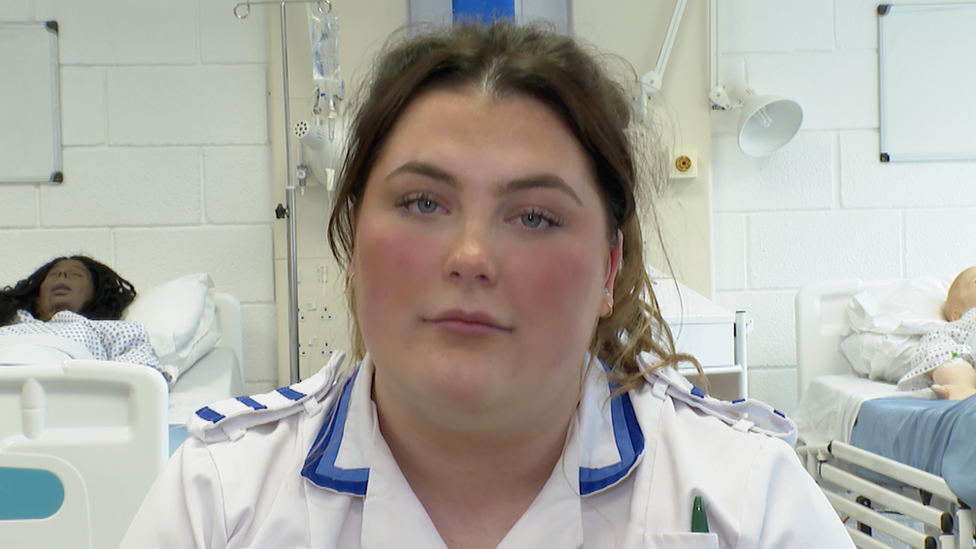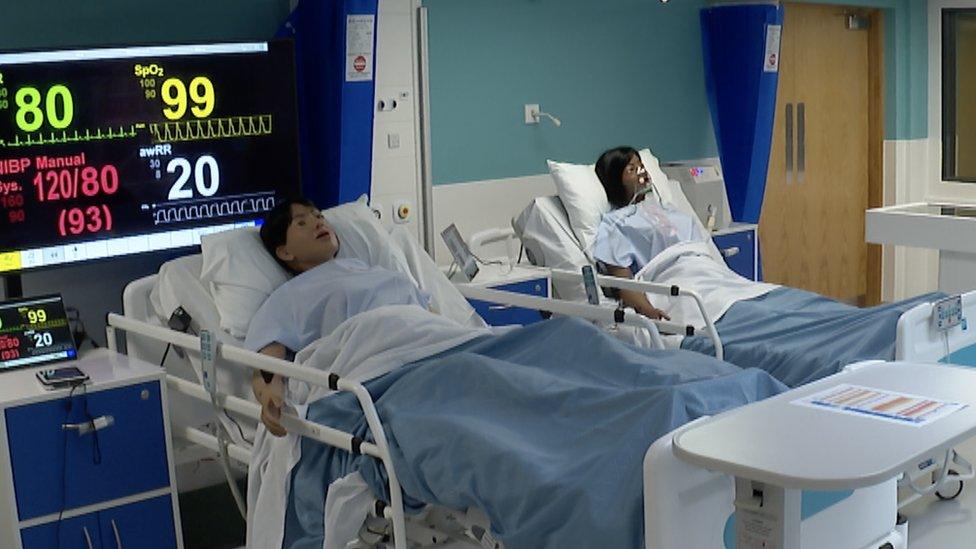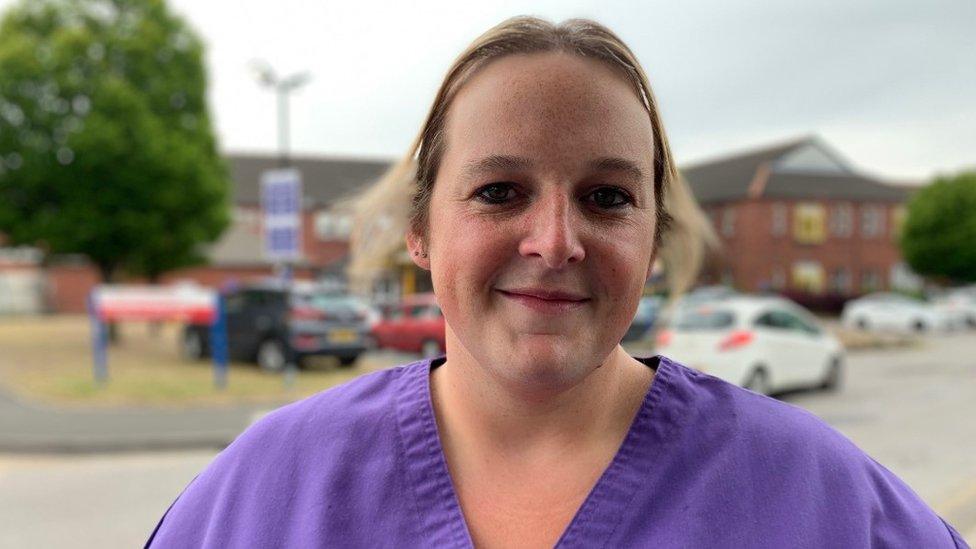Cost of living: Student nurse could quit over money
- Published

Student nurse Claire Akaeze said she could have to leave her studies due to the cost of living crisis
A student nurse fears she may be forced to quit her university course due to cost of living pressures.
Claire Akaeze studies at the University of Worcester but said if support from home ended she would have to look for a full-time job instead.
Fewer chances to get part-time jobs and travel costs are making it difficult, the Nursing and Midwifery Council said.
The Department of Health said it was on track to meet a promise to recruit 50,000 nurses by March 2024.
Ms Akaeze is in the second year of her course at the university and came to the UK from Nigeria to get a more "internationally recognised" nursing qualification.
But the 28-year-old said she was struggling with the rising costs of food and bills.
"I have faced a lot of challenges even though I get support from my family back home in Nigeria," she said.
"One of them would be the rising cost of electricity bills and also bus fares and having to go to placement and having to buy groceries. Everything has just spiked."
In addition to her studies, Claire works two days a week as a healthcare assistant.
Leaving the course if her support stopped "is an option if things keep going the way they are", she said.

Third year nursing student Tyde Naylor said she knew of people who had dropped out due to the cost of living crisis
She would not be the first to quit if she did, according to Tyde Naylor, a third year nursing student at Worcester.
Some of her friends dropped out because of the rising costs, the 21-year-old from Halesowen said.
"I don't think I could've managed to do the course if I wasn't living at home," she added.
"I have the luxury of parents being able to support me. Everything is going up. Petrol to placement, parking."
Kevin Crimmons is head of nursing at Newman University, Birmingham as well as vice-chair of the Royal College of Nursing's West Midlands ward.
The current situation is very tough for student nurses, he said.
"They're doing a 37.5-hour week out on placement. It's full-time hours. And that includes early, late and night shifts," Mr Crimmons said.
"They can't commit to regular hours doing bar work or something like this because of the way the course is designed."
Adult student nurses receive £5,000 annually as a bursary as well as a separate student loan for living costs but that does not cover other costs, he added.

More than 600 people have applied for just 85 places on new courses due to begin at Newman University in September
The University of Worcester said it had seen a fall in the number of applications for its nursing courses, which a spokesperson put down to what they called the reporting of the "crisis unfolding in the NHS".
Figures from the Higher Education Statistics Agency show the number of first year undergraduates studying nursing at UK higher education providers has fallen by almost 8,000 since 2014 - from 66,570 to 58,630. Although there has been an increase since 2020.
At Newman University, more than 600 people have applied for 85 places on its new courses from September.
"There are a lot of people out there who want to go into these professions," vice chancellor Prof Jackie Dunne said.
Since 2019, there has been a 16% increase in the number of acceptances to undergraduate nursing and midwifery programmes, the government said.
"We are making significant progress in training and recruiting staff," a spokesperson for the Department of Health said.

Follow BBC West Midlands on Facebook, external, Twitter, external and Instagram, external. Send your story ideas to: newsonline.westmidlands@bbc.co.uk
Related topics
- Published12 December 2022

- Published22 September 2022

- Published22 July 2022
